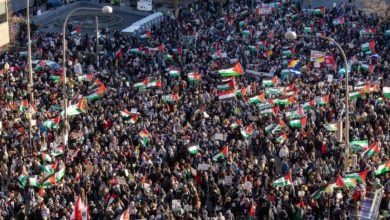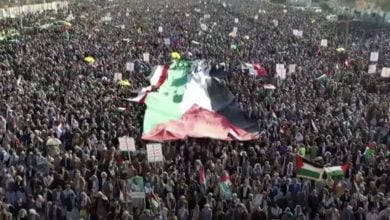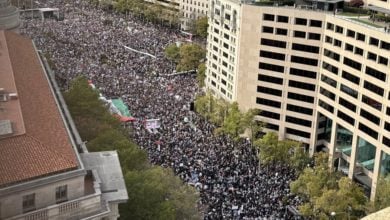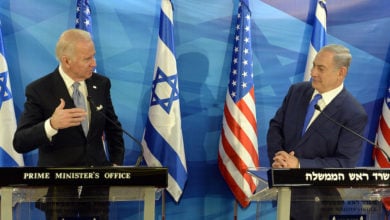Reposted from People’s Dispatch
Photo: Arun Hemachandra from Sri Lanka spoke about the challenges facing the working class in Sri Lanka during the panel “Organization of the Working Class”. Credit — Rafael Stedile
The organization of the working class internationally, the right of people to health and housing, food sovereignty and the rights of immigrants were at the center of the discussion on Sunday October 15 of the III International Conference Dilemmas of Humanity taking place in the city of Johannesburg, South Africa.
On the second day of the meeting, attended by around 500 delegates from more than 70 countries, the presentations were once again centered around the main dilemmas facing humanity today due to the prevailing capitalist system and the advance of imperialism in every corner of the planet.
The day began with the general panel “Organization of the working class”, in which Irvin Jim, general secretary of the National Union of Metalworkers of South Africa (NUMSA), Ana Priscila Alves, of the World March of Women movement in Brazil, Peter Mertens, a member of the Workers’ Party of Belgium, and João Pedro Stédile, leader of the Landless Rural Workers’ Movement (MST) of Brazil, took part.
The overarching theme of the debate was the challenges facing the working class today in the face of the ferocious onslaught launched by the capitalist system and its representatives, the ruling class, through neoliberal policies. Faced with this reality, the speakers agreed that capitalism has no solution to the problems of society and only the united working class is capable of facing and responding to the current dilemmas.
“The crises are accompanied by a policy of austerity, reduction of the State, reduction of the health system, of the public education system, and of the public care system…The capitalist system attacks not only work, but also our lives. Capitalism is incompatible with life,” expressed Alves during her speech.
In the same line, the General Secretary of NUMSA sentenced that “the capitalist system has no solution for the problems of the people” and stated that “the working class must build its own organic and intellectual detachment that subordinates itself to the pursuit of socialism,” as a solution to the dilemmas of humanity.
“We can call it investment, but wherever capital arrives its mission is always to exploit,” the South African leader declared.
As an alternative to this reality, the Brazilian leader and member of the World March of Women proposed building “a feminist economy that puts life before profit” and, to achieve this, she asserted that “if oppression comes to us in an international and globalized way, our response, our socialism, our feminism must also be international.”
“The absolute priority of our organizations has to be all the time, all day, all our lives, to organize the masses so that they fight against exploitation,” João Pedro Stédile said, reiterating the need to move from rhetoric to practice when working to build socialism and empower the people. He added, “In order to organize the mass struggle it is necessary first to do grassroots work to organize the working class in their workplaces, housing, schools, and so on.”
For his part, Mertens launched a rhetorical question: “Who is creating everything in society?” He responded saying, “You know the answer. It is not the ruling class. It is not the capitalist class. It is the working class, comrades. The working class is the creative class. The working class is the class that builds things. The working class is the class of the future.”
In the afternoon session of the conference, seminars addressed topics of interest such as health and public housing, migrants’ rights and the food sovereignty of nations.
In the seminar Health for the People, the documentary “Iztapalapa: building our utopias today” was presented, which presents the initiatives and results of public policies implemented during the administration of Clara Brugada from a perspective of gender equality in the most populated and poorest municipality of Mexico City.
At another point in the afternoon and addressing the issues of housing and access to land, South African leader S’bu Zikode of the movement for housing, land, and dignity Abahlali baseMjondolo, emphasized the peoples’ struggle in this regard.
“When you have land you have everything…We are determined to fight for land, and we know and we are clear that it will never be delivered by a helicopter or a silver plate, land will never be given, it will be taken, so we have begun to take our land,” he explained.
Until October 18, the third edition of the Dilemmas of Humanity will address the obstacles and possibilities of the peoples in their struggle for a more just world far removed from the oppressive capitalist system.






